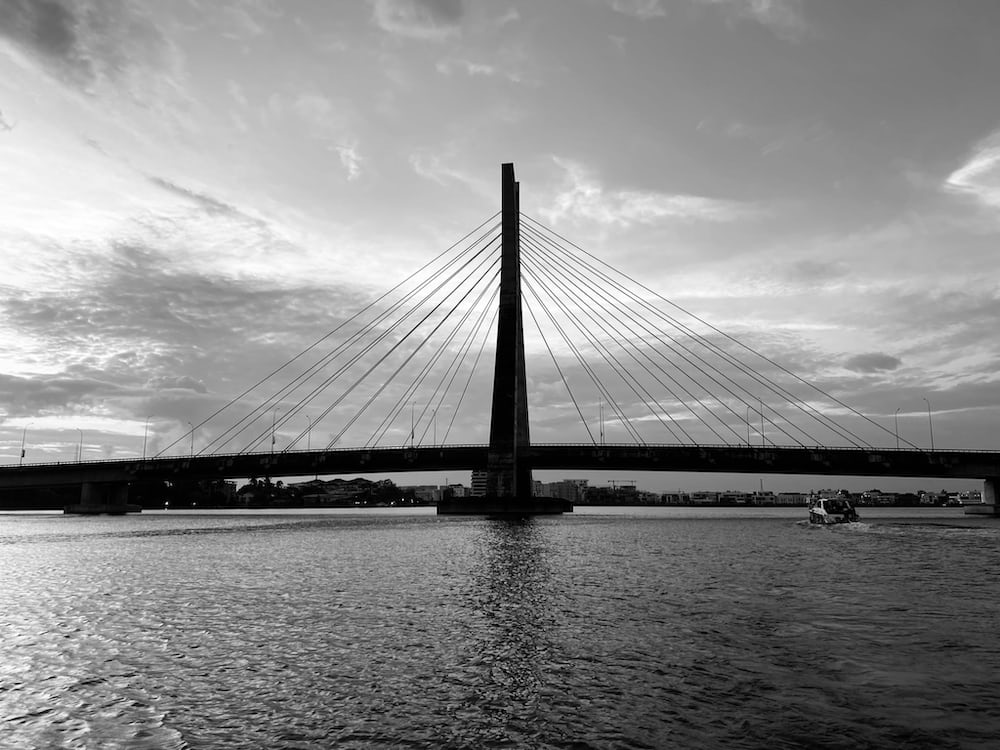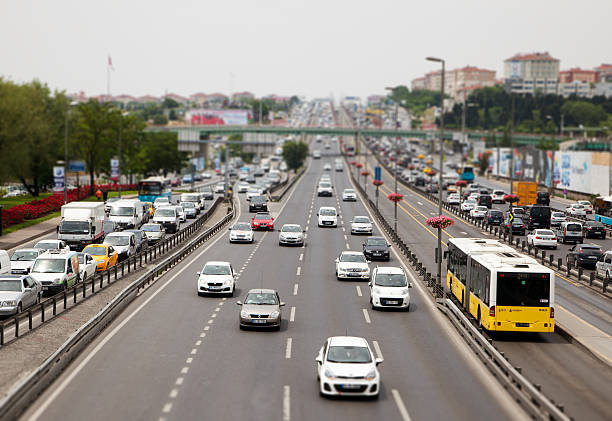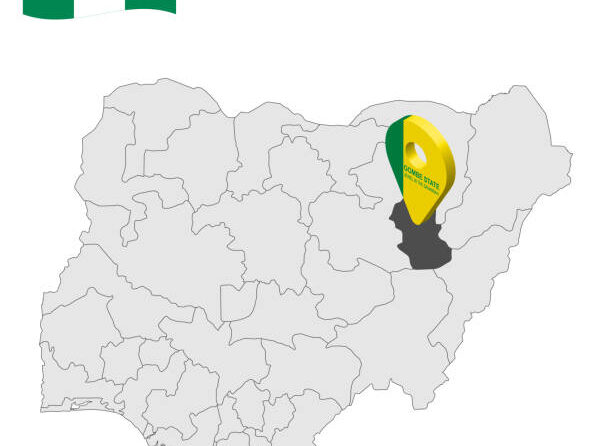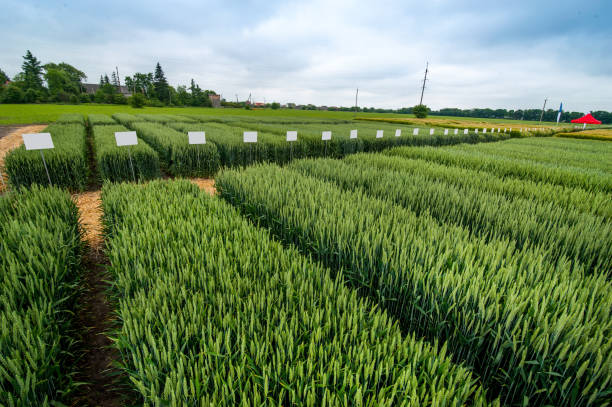Infrastructure Development is a crucial catalyst for economic growth and social progress in any nation. It forms the backbone of a country’s ability to facilitate trade, enhance connectivity, and ensure the smooth movement of people and goods. In the context of Nigeria, a country with immense potential and a growing economy, investing in roads, bridges, and transportation systems becomes paramount to unlocking its true potential.
The significance of infrastructure development cannot be overstated. Roads and bridges are the arteries that connect cities, towns, and rural areas, enabling the efficient movement of goods and services. Modern transportation systems, including railways, metros, and public transit, offer the convenience and accessibility that are essential for a thriving urban landscape. These infrastructure components not only foster economic activity but also contribute to job creation and improved quality of life.
Nigeria, as Africa’s most populous nation and a regional economic powerhouse, faces a unique set of challenges and opportunities. While the nation boasts a burgeoning economy and a youthful demographic dividend, it grapples with inadequate road networks, ageing bridges, and a transportation system that struggles to keep pace with urbanisation. However, these challenges present opportunities for innovative solutions and transformative changes that can position Nigeria as a true global contender.
Join us on this insightful journey as we navigate through the intricate web of Nigeria’s infrastructure landscape and uncover the potential it holds for propelling the nation towards a brighter and more prosperous future.
The State of Nigeria’s Infrastructure
A. Overview of Current Road and Bridge Conditions
Nigeria’s road and bridge infrastructure, while providing essential connectivity, has been plagued by a lack of maintenance and investment over the years. Many roads suffer from potholes and deterioration, making travel challenging and causing unnecessary wear and tear on vehicles. Bridges, which play a crucial role in connecting different regions, often face structural deficiencies due to inadequate maintenance.
The consequences of subpar infrastructure are felt nationwide. Commuters face longer travel times, increased vehicle maintenance costs, and a heightened risk of accidents. Businesses grapple with delays in the movement of goods, hindering supply chains and economic growth. Addressing these issues requires a concerted effort to rehabilitate existing roads and bridges while adopting modern construction and maintenance practices.
B. Transportation Sector Challenges and Bottlenecks
The transportation sector in Nigeria faces multifaceted challenges that extend beyond roads and bridges. Public transportation networks are often characterised by inefficiencies, unreliable services, and inadequate coverage. Urban centres experience traffic congestion, resulting in productivity losses, increased fuel consumption, and environmental pollution.
As we move forward, the need to recognize and tackle these issues becomes increasingly pressing. The state of Nigeria’s infrastructure is not merely a matter of convenience; it’s a determinant of economic progress, social inclusivity, and sustainable development.
The Economic Impact of Infrastructure Investment
A. Connection between Infrastructure and GDP Growth
Investing in infrastructure has a direct correlation with a nation’s economic growth. When roads, bridges, and transportation systems are well-developed and maintained, they facilitate the movement of goods and people, thereby reducing transaction costs and enhancing overall productivity. This increased efficiency stimulates economic activity and can lead to higher Gross Domestic Product (GDP) growth rates.
Infrastructure projects, whether they involve expanding existing networks or constructing new ones, create a ripple effect throughout the economy. They generate demand for construction materials, skilled labour, and engineering services, thereby boosting multiple sectors simultaneously. As Nigeria positions itself as an emerging market, strategic infrastructure investments can serve as a catalyst for sustained economic development.
B. Job Creation and Employment Opportunities
One of the most significant advantages of infrastructure development is its potential to create jobs across various skill levels. Construction projects require labourers, engineers, architects, project managers, and administrative staff, among others. As these projects unfold, local communities benefit from increased employment opportunities, leading to enhanced income distribution and reduced unemployment rates.
Moreover, the long-term benefits of infrastructure investment extend beyond the construction phase. A well-functioning transportation network encourages trade, spurs tourism, and attracts foreign investment, all of which contribute to job creation in sectors beyond construction. By prioritising infrastructure, Nigeria can not only stimulate economic growth but also improve the livelihoods of its citizens.
Key Benefits of Improved Roads and Bridges
A. Enhanced Connectivity and Reduced Travel Time
The value of a well-constructed road network extends far beyond providing a smooth surface to drive on. It’s about creating a web of connectivity that bridges the gaps between urban and rural areas, facilitating the movement of people, goods, and services. Improved roads and bridges ensure that remote communities are not left isolated, enabling access to essential resources such as healthcare, education, and job opportunities.
Additionally, well-maintained roads and bridges contribute to reduced travel time. Commuters can reach their destinations more efficiently, reducing stress and increasing productivity. Businesses can transport goods more swiftly, contributing to supply chain optimization and cost savings. These time-saving benefits translate into improved quality of life for individuals and increased competitiveness for businesses.
B. Boost in Trade and Commerce
A robust road and bridge network enhances trade and commerce by providing seamless connections between production centres, markets, and ports. Efficient transportation allows goods to reach markets faster, reducing spoilage and waste. It also opens up opportunities for cross-border trade, enabling the export of Nigerian products to international markets and facilitating the import of essential goods.
Furthermore, improved infrastructure attracts investors and businesses, as they are more likely to establish operations in areas with reliable transportation links. This influx of economic activity can lead to job creation and increased local revenue, driving economic growth and prosperity.
C. Increased Safety and Reduced Accident Rates
Safe roads are a fundamental requirement for any society. Well-constructed roads and bridges, along with proper signage and lighting, contribute to safer travel conditions. This leads to fewer accidents, reduced loss of life, and lower healthcare costs associated with injuries sustained in road accidents.
Moreover, a focus on safety can result in reduced maintenance expenses in the long run. Adequate road design and construction techniques contribute to the durability of infrastructure, reducing the need for frequent repairs and replacements. The investment in safety measures and quality construction pays off by ensuring the longevity of the infrastructure and minimising disruptions due to road closures.
As we delve deeper into the importance of advancing transportation systems and modernising public transportation networks, we will continue to unravel the potential that infrastructure development holds for Nigeria’s growth and prosperity.
Advancing Transportation Systems

A. Modernising Public Transportation Networks
Efficient and reliable public transportation is the backbone of any thriving urban environment. In Nigeria, as urbanisation accelerates, the demand for convenient and accessible public transit systems becomes increasingly pronounced. Modernising public transportation networks, such as buses and trams, can alleviate traffic congestion, reduce pollution, and enhance the overall quality of urban life.
Investments in modernising public transportation extend beyond the vehicles themselves. Integrated ticketing systems, real-time tracking, and user-friendly apps can improve the overall experience for commuters. By offering an attractive alternative to private vehicles, well-implemented public transit systems encourage more sustainable modes of travel and contribute to the reduction of traffic on the roads.
B. Importance of Investing in Railway and Metro Systems
Railway and metro systems are transformative infrastructure projects with the potential to revolutionise transportation in Nigeria. They provide a high-capacity means of moving people across longer distances while reducing traffic congestion on roads. Efficient railways connect cities and regions, promoting balanced development and providing a boost to regional economies.
Metro systems, especially in densely populated urban centres, offer a reliable and time-efficient mode of transport. They cater to the needs of daily commuters, reducing reliance on private vehicles and contributing to a cleaner environment. Investment in rail-based transportation not only addresses congestion but also aligns with global sustainability goals by promoting greener travel options.
C. Potential for Reducing Traffic Congestion
Traffic congestion is a common woe in many Nigerian cities. Congested roads lead to lost productivity, increased fuel consumption, and heightened air pollution. By investing in efficient public transportation and intermodal connectivity, congestion can be alleviated. Commuters have viable alternatives to driving, which can lead to fewer private vehicles on the road during peak hours.
Moreover, integrating transportation modes such as buses, trains, and cycling, provides a holistic solution to traffic woes. Encouraging cycling and pedestrian-friendly infrastructure not only eases congestion but also promotes healthier lifestyles and reduces carbon emissions. As urbanisation continues, embracing innovative transportation solutions becomes essential for ensuring sustainable and livable cities.
Factors Hindering Infrastructure Development
A. Financing Challenges and Budget Constraints
Infrastructure development requires substantial financial resources, and securing funding for large-scale projects can be a complex endeavour. Budget constraints, competing priorities, and economic fluctuations can pose challenges to allocating adequate funds. Additionally, attracting private investment can be challenging if potential investors are concerned about political instability or uncertain returns on their investments.
To overcome financing challenges, creative solutions such as public-private partnerships (PPPs) can be explored. PPPs allow governments to collaborate with private entities to fund, develop, and operate infrastructure projects. By sharing risks and responsibilities, both parties can contribute their expertise and resources, leading to more efficient and well-executed projects.
B. Corruption and Mismanagement Issues
Corruption and mismanagement have the potential to undermine infrastructure development efforts. When funds meant for projects are syphoned off or misused, the quality and progress of those projects suffer. Transparent procurement processes, stringent oversight, and the implementation of anti-corruption measures are essential to safeguarding the integrity of infrastructure projects.
Institutional reforms and anti-corruption initiatives are critical to creating an environment of accountability and transparency. Addressing corruption not only ensures that funds are used effectively but also boosts investor confidence and fosters public trust in the government’s ability to deliver on its promises.
C. Regulatory Hurdles and Land Acquisition Problems
Navigating complex regulatory frameworks and acquiring the necessary land for infrastructure projects can be arduous processes. Delays in obtaining permits, licences, and approvals can slow down project timelines and increase costs. Land acquisition challenges, including issues related to compensation and legal disputes, can hinder the progress of projects, leading to potential bottlenecks.
To overcome regulatory hurdles, streamlining approval processes and ensuring clarity in regulations is crucial. Land acquisition processes need to be fair and transparent, with just compensation for affected communities. By addressing these obstacles, Nigeria can create a more conducive environment for infrastructure development and reduce project delays.
Successful Infrastructure Projects in Nigeria
A. Showcasing Notable Examples of Road and Bridge Projects
While Nigeria faces challenges in its infrastructure landscape, there have been commendable successes that demonstrate the potential for positive change. Notable road and bridge projects have showcased the country’s capacity to transform its transportation networks. Examples include the Second Niger Bridge, a major connectivity project spanning the Niger River, and the Lagos-Ibadan Expressway expansion, aimed at easing congestion and improving travel times between two key cities.
These projects not only highlight Nigeria’s commitment to infrastructure development but also serve as testaments to effective planning and execution. They showcase the tangible benefits that modern and well-maintained roads and bridges can bring to communities and the economy as a whole.
B. Highlighting Effective Public-Private Partnerships
Public-Private Partnerships (PPPs) have played a pivotal role in driving successful infrastructure projects in Nigeria. These partnerships leverage the strengths of both the public and private sectors to deliver projects that might otherwise face financial or operational challenges. Notable examples include the Lekki Toll Road and the Abuja-Kaduna Railway, both of which were developed through PPP arrangements.
Effective PPPs demonstrate the potential for shared risk and reward, as well as the ability to tap into private sector expertise. These partnerships have the capacity to address financing gaps, accelerate project timelines, and ensure sustainable operation and maintenance.
By studying these success stories, Nigeria can gain insights into the strategies, best practices, and collaborative models that can be replicated to foster a culture of effective infrastructure development across the nation.
Conclusion
As we conclude our exploration of Nigeria’s infrastructure development journey, it becomes evident that the nation stands at a crossroads of challenges and opportunities. The importance of investing in roads, bridges, and transportation systems cannot be overstated, as they form the backbone of economic growth, social progress, and improved quality of life for citizens.
Throughout this discourse, we’ve delved into the economic impact of infrastructure investment, the benefits of improved roads and bridges, and the potential of advancing transportation systems. We’ve also examined the obstacles hindering progress, from financing challenges to corruption concerns, and discussed successful projects that exemplify effective implementation.
Nigeria’s commitment to infrastructure development serves as a testament to its determination to unleash its true potential on the global stage. By addressing challenges head-on, embracing innovative solutions, and fostering collaboration between the public and private sectors, Nigeria can chart a course towards sustainable development that benefits both current and future generations.












